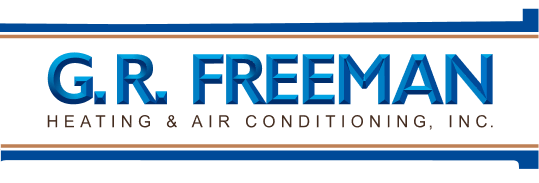Your indoor air quality can be impacted by contaminants such as pet dander, pollen, dust mites, and mold spores, and the amount of particulate matter in a home can vary from one residence to the next. The types of particulates vary as well. There are methods you can use to improve your indoor air quality. However, it helps you to know what kind of indoor air quality issues you’re dealing with so you can choose your equipment based on your particular needs.
What Does an Indoor Air Quality Test Cover?
When you have an indoor air quality test performed, our team will take samples from different areas of your home. This includes air samples as well as samples off surfaces. We will check for different types of particulate matter, mold spores, common allergens, and more. The goal is to obtain a well-rounded picture of what the air inside your home is like. We avoid just checking one room, as this can result in missing a specific contaminant that’s in another living space.
While an initial indoor air quality assessment can be beneficial as a starting point, we recommend having these tests performed again in the future. This will determine if your methods of improving your indoor air quality are working. Also, we’ll want to determine if there are any new contaminants that need to be dealt with.
Methods of Improving Indoor Air Quality
If your home’s indoor air quality is impacted by typical allergens and contaminants like dust, dust mites, pollen, and pet dander, you should use a high-quality filter in your HVAC system. Make sure that you change this filter once every 30 to 90 days for optimal results. You can upgrade this to an activated carbon filter if you are dealing with the presence of volatile organic compounds in your air. These VOCs are chemicals off-gassed from cleaning products, air fresheners, building products, and other sources. Activated carbon filters can also remove cooking odors and cigarette smoke from your indoor atmosphere.
If you have a high prevalence of particulate matter in your indoor air, we recommend installing a whole-house air purifier onto your HVAC system. This equipment will use enhanced filtration to remove particulates from all the air that’s circulating through your home as your heating and cooling equipment functions to control your indoor temperature. These filters also require replacement periodically.
In addition, you can have a UV light installed onto your HVAC system. This light cannot trap particulate matter, but it can damage the cellular structure of things like bacteria, viruses, and mold spores, rendering them harmless. The light should also be cleaned periodically to ensure its efficiency.
Lowering Your Energy Bills
When you have a large concentration of particulate matter in your indoor air, it can impact the efficiency and integrity of your heating and cooling equipment. Particulate matter can build up on the interior components of your system, leading to system strain and wear and tear. This forces your HVAC system to work harder to achieve your preferred indoor temperature, which raises your energy consumption. You may see a lower monthly energy bill when you utilize whole-house filtration.
Improving Comfort
You may not notice that the quality of your indoor air is directly impacting your health and well-being. If you have many allergens in your home, this can make you feel itchy, cause you to sneeze frequently, and result in a chronic cough. It reduces your ability to relax and unwind in your home. Exposure to contaminants like volatile organic compounds and mold spores can lead to headaches, fatigue, brain fog, and nausea. Finding out what’s in your indoor air and acting accordingly can improve the overall comfort of your home.
You can also ensure that you experience a comfortable and consistent temperature throughout your residence, regardless of whether you’re running your air conditioner or furnace. Inefficient HVAC equipment can lead to hot and cold spots throughout your home. You can reduce this risk by using appropriate whole-house filtration.
In addition to providing a full line of other HVAC services to clients in or near Evansville, IN, our team at G. R. Freeman Heating & Air Conditioning, Inc. is here if you need assistance with testing your indoor air quality. If you’re having any issues with it, you’ll find the testing informative and worthwhile. We can also help you determine what kind of filter you should be using in your HVAC system, and we can install a whole-house air purification device onto your system if you choose to do so. This could include UV light filtration. Contact us at G. R. Freeman Heating & Air Conditioning, Inc. today to schedule an appointment with our knowledgeable technicians.







